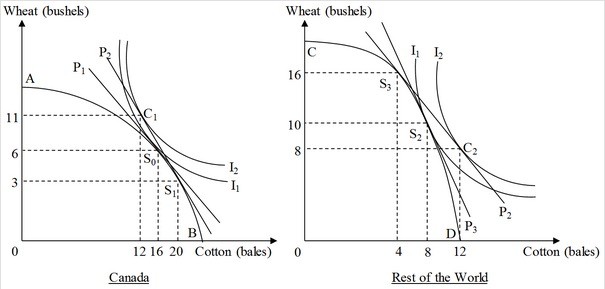What is barter? What is a double coincidence of wants? How does the existence of money affect barter?
What will be an ideal response?
Barter is the direct exchange of one good or service for another. Barter is inefficient because it requires a "double coincidence of wants," that is, the good one person offers for exchange must be the good the trading partner wants and the trading partner's good must be what the first person wants. The existence of money means that we do not need to engage in barter. Instead, we can sell a good or service for money and then use the money to purchase another good or service we desire. There is no necessity for the "double coincidence of wants" because the seller is willing to accept money from any buyer.
You might also like to view...
If, in retaliation for "unfair" trade practices, Congress imposes a 30 percent tariff on Japanese DVD recorders, but at the same time, U.S. demand for Japanese goods increases, then, in the long run, ________, everything else held constant
A) the Japanese yen should appreciate relative to the U.S. dollar B) the Japanese yen should depreciate relative to the U.S. dollar C) there is no effect on the Japanese yen relative to the U.S. dollar D) the Japanese yen could appreciate, depreciate or remain constant relative to the U.S. dollar
The figure below shows the production-possibility curves of Canada (AB) and the rest of the world (CD). I1 and I2 are community indifference curves for Canada and the rest of the world. In the absence of trade, Canada consumes ________ bales of cotton and ________ bushels of wheat.
A. twenty; six B. twelve; eleven C. sixteen; six D. twenty; three